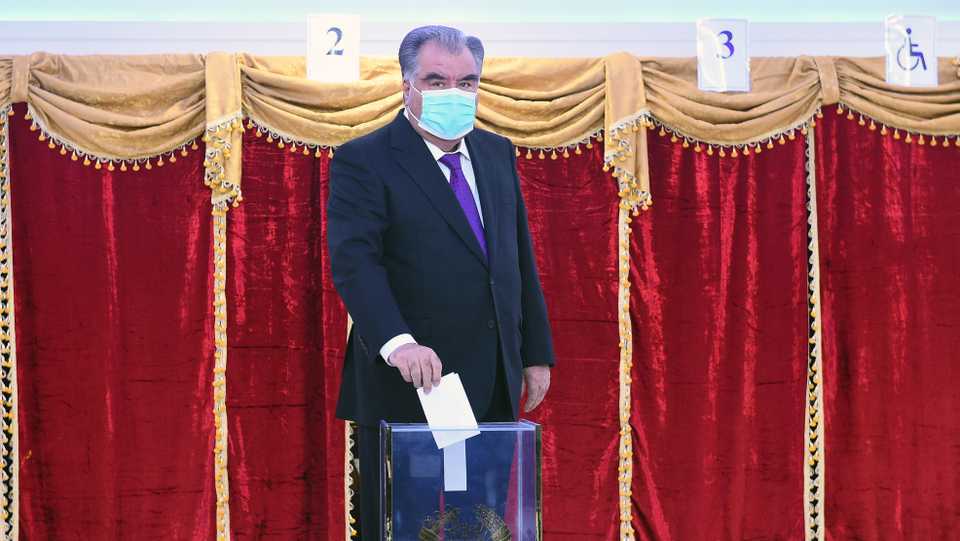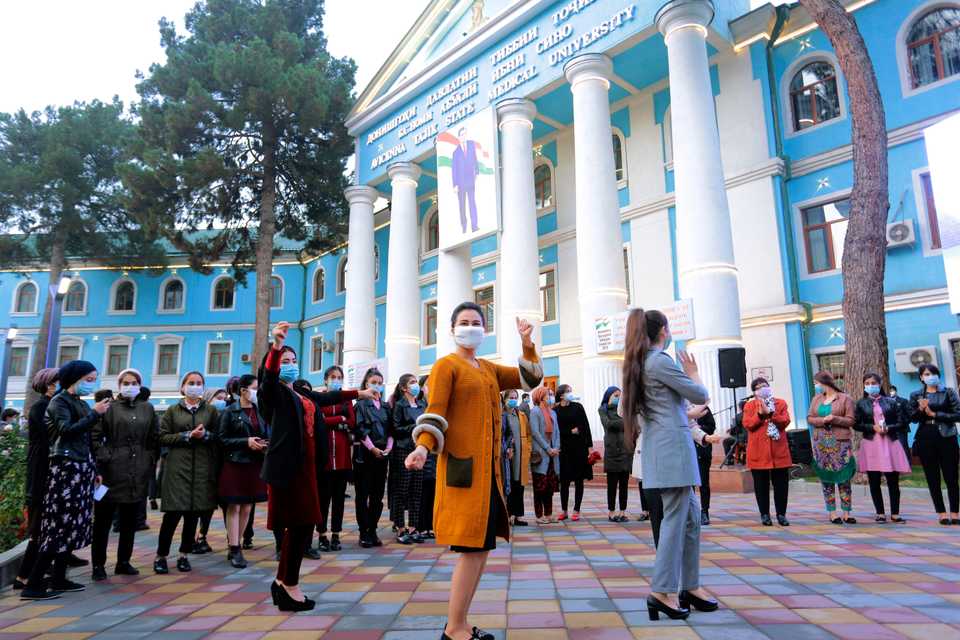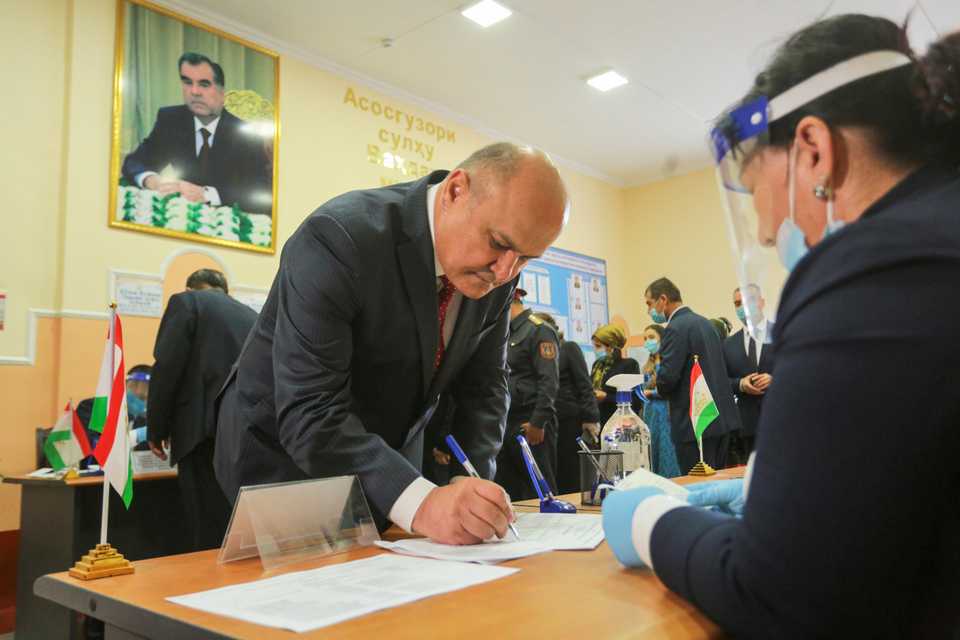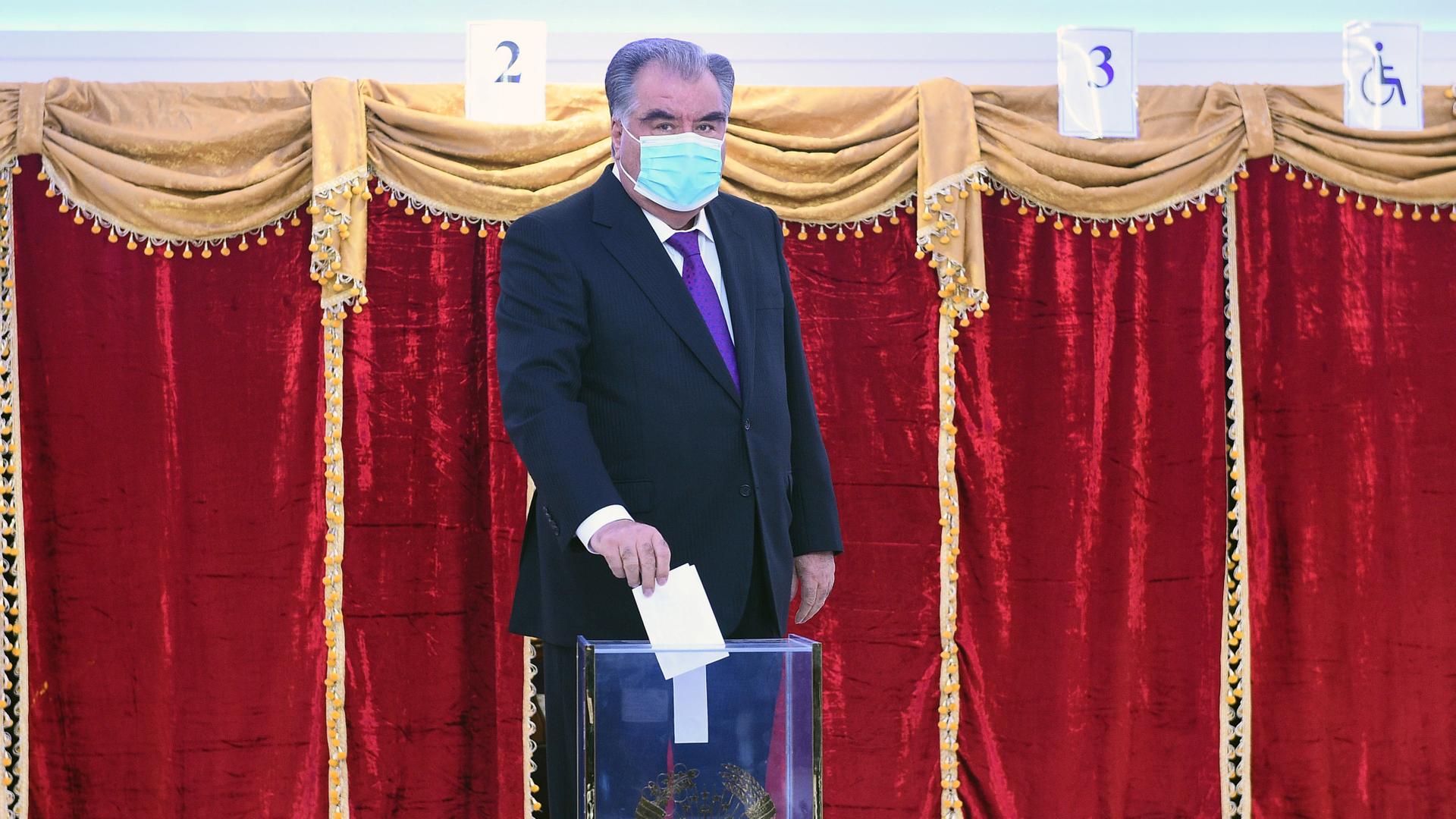
Voting is under way in Tajikistan in a presidential election expected to pave the way for incumbent Emomali Rakhmon to become the longest-ruling strongman in the former Soviet space.
Few are anticipating any hiccups for Rakhmon in Sunday’s election as he closes in on three decades in power and looks to overtake Kazakhstan’s recently retired Nursultan Nazarbayev in the regional longevity stakes.
Rakhmon cast his vote in a “school for gifted children” according to a report by Russian agency RIA Novosti, which said the leader was “in a good mood, as he greeted the journalists at the polling station.”
Rakhmon faces four other candidates, all of whom are viewed as token opponents, in his bid for a fresh seven-year term.
READ MORE: Is US losing the new Great Game in Central Asia?

Results expected on Monday
Polling stations opened at 6:00 am local (0100 GMT) and will close at 8:00 pm (1500 GMT), with results expected the following morning.
Voters in the capital Dushanbe overwhelmingly stated their intention to cast their ballot for Rakhmon — and struggled to name the other candidates.
Zarina Mamadnazarova, a 25-year-old woman who is currently unemployed, said she would vote for Rakhmon “because he is the best president, our national leader.”
READ MORE: Tajikistan to get $230M from China for new parliament building
Unlimited time in office
Rakhmon was elected president in 1994 after the position was re-established, and re-elected in 1999, 2006, and 2013.
None of the votes were endorsed by Western electoral observers.
Rakhmon is portrayed by state media as bringing stability to the country following a civil war during the 1990s that pitted government forces against a diverse opposition including militants.
Constitutional changes passed in 2016 allowed the “Founder Of Peace and National Unity, Leader of the Nation”, as Rakhmon is officially known, to run for office an unlimited number of times.
Rights groups have flagged an intensifying crackdown on opposition, media, and civil society since the changes took effect.

Opposition boycott
All four competitors are members of the docile lower house of parliament and have avoided criticising Rakhmon.
Though they say they are in the race to win, their campaign staff privately admit they have little chance of garnering any significant vote count.
The candidates he faces exist “to give a veneer of a campaign to what is otherwise a non-event,” said John Heathershaw, professor of international relations at the University of Exeter in the United Kingdom.
A party that many view as the only real opposition force in the country — the Social Democratic Party of Tajikistan —announced that it would boycott the vote not long after a date for the ballot was set.
“We see that all power structures, all levers (of government) work for the benefit of one person,” the party’s deputy chairman Shokirjon Hakimov said.
Hakimov added that politics in the country under Rakhmon’s rule has been defined by “nepotism, regionalism, and corruption.”
The presidential poll may attract more attention this time after recent elections in two other ex-Soviet republics – Belarus and Kyrgyzstan – sparked protests, adding to a belt of instability around Russia.










Discussion about this post